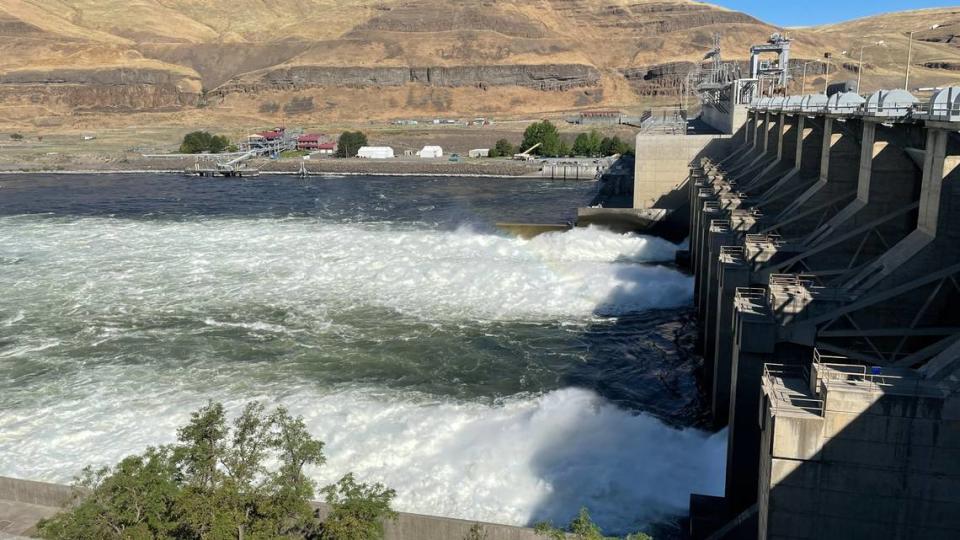Despite the controversy, these Idaho lawmakers support keeping WA’s Snake River dams | Opinion
- Oops!Something went wrong.Please try again later.
Hydropower is an important source of reliable and clean energy for everyone in the Northwest, especially Idahoans. However, with the recent debate surrounding the Snake River dams concentrated on the benefits for and support in Washington State, we want to emphasize just how significant an effect these dams have on Idaho and why we must continue to protect them.
As a U.S. Senator and the leader of an independent free-market research organization, we are unified in our effort to protect the Snake River dams and maintain their economic and environmental benefits for our region. Beyond us, there is strong, widespread support for the dams, including from Idaho officials and trade groups.
The Idaho Farm Bureau Federation is on record, having written that the dams “produce a significant amount of affordable and environmentally friendly hydroelectric power to the region” while allowing farmers to “export their product to the world.” Additionally, the Idaho Legislature passed a resolution in 2021, stating it “supports the international competitiveness, multi-modal transportation, and economic development benefits provided by the Port of Lewiston and the Columbia-Snake River System.”
But Scott Corbitt, General Manager of the Port of Lewiston, perhaps demonstrates the importance of the dams to Idahoans best. “The culture, business, and lifestyle of Lewiston revolve around the Clearwater and Snake rivers and the slack water, or pool created by the Lower Snake River Dams (LSRD),” Corbitt testified. “That Pool has developed opportunities for the Lewis Clark Valley that now serve as the lifeblood and supports an economy for around 65,000 people.”
During a congressional field hearing last month, the Environmental Director for the Washington Policy Center, Todd Myers, summarized the severe damage that would result from eliminating the dams: “Spending $35 billion – or more — to destroy the four Lower Snake River dams would be counterproductive, not just for the climate, energy reliability, and the economy, but for salmon by misallocating resources that could do so much good across the region.”
We could not agree more.
But don’t just take our word for it. Look at the result of the only comprehensive, scientific, and public process: the Columbia River System Operations Record of Decision. This multi-year process, which was undertaken by both a Democrat and Republican administration, made one thing abundantly clear: dam breaching on the lower Snake River is completely unnecessary and unwarranted.
Moreover, there is one salient point that is often overlooked in the debate about the Snake River dams: Congress authorized these dams, and only Congress has the power to remove them. Thankfully, many of the congressional members elected to the areas surrounding the Snake River dams are working to protect the economic and environmental benefits they provide.
The Northwest Energy Security Act, which I, Senator Risch, introduced with Senator Steve Daines (R-Mont.), Mike Crapo (R-Idaho), and U.S. Reps. Dan Newhouse (R-Wash.), Cathy McMorris Rodgers (R-Wash.), and Russ Fulcher (R-Idaho) is a key part of this effort. While the lower Snake River dams are congressionally protected, our bill goes one step further by explicitly securing the energy, transportation, agriculture, and irrigation benefits the dams provide.
Protecting the Snake River dams and other federal water infrastructure is pivotal to both Washington and Idaho. Together we’ll remain dam strong for the benefit of our region.
U.S. Senator Jim Risch is currently serving his third term as Idaho’s 28th Senator and previously served as Idaho’s 31st Governor. Risch represents Idaho’s interests on the Senate Energy and Natural Resources Committee. Jason Mercier is Vice President and Director of Research for the Mountain States Policy Center, an independent free-market research organization based in Idaho.



